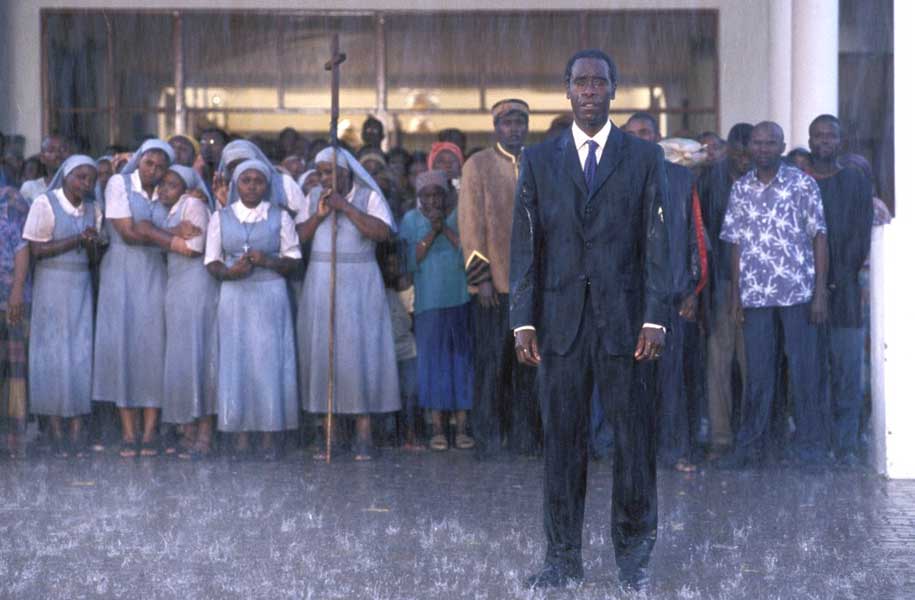Last night I noticed that Amazon Prime now offers the movie Hotel Rwanda. It’s based on the true story of a hotel manager who shielded 1,268 people from certain slaughter during the 1994 Rwandan genocide. I couldn’t resist watching it (for the fourth time). What I’m drawn to is that the protagonist is motivated by a very simple drive: to take care of others’ needs and make them happy. Hutu Rwandan Paul Rusesabagina is an excellent hotel manager because he derives personal satisfaction from providing the best service to his guests. He simply lives to take care of others. We look back on the Rwandan genocide of the Tutsis and marvel at Rusesabagina’s heroism to stand up to soldiers, police and Hutu murderers, but his motivation is simply that these are his guests and he must take care of them.
Hotel Rwanda shows that the simplest of drives can take you very far. We almost worship people who risk their lives for others, but actually the mechanism that causes people to act in these ways is usually very ordinary. Rosa Parks was tired of giving in and tired of being on her feet. Captain Sully wanted to land his plane safely, just as he’d done hundreds of times before. Animals who we call heroes (dogs and cats) act on instinct. None of these people or creatures considers that their actions might set off a chain reaction that will have far reaching effects across the decades, or make them famous or will prevent a death that would have devastating ripple effects. They just do what they’re hard-wired to do.
Moments of heroism happen when an unusual situation both activates and challenges someone’s regular, everyday response and that person follows through on that response regardless of risk. We think it’s amazing because after the incident is over, we can see all the risks and stunning outcomes. We weigh all the things the hero didn’t have time to weigh and that forms the basis of the myth that this person has bravery we don’t have. But they don’t have bravery we don’t have. They weren’t being a genius or a saint. They were just doing what came naturally.
We all have unremarkable drives that, under the right circumstances, cause us to act in remarkable ways. If we de-mythologize the idea of heroism, we can stop thinking that some people are brave, but we are not. We can stop excusing ourselves from taking action because that’s not us.
Between April and July 1994, Paul Rusesabagina did what he was hard-wired to do. Remarkably, he kept doing it even when he knew his life was in danger, but his motivation was quite ordinary. When we find ourselves in a situation that challenges us, and we don’t waver from what comes naturally, we are similarly being as heroic as Rusesabagina was. Human beings have all the same instincts and responses. We are all just as capable of what we call heroism as of what we call evil. (Post: No such thing as evil.)
 |
| Don Cheadle in Hotel Rwanda (2005) |
P.S. Part of the reason I’ve watched this movie four times is that the character of Rusesabagina reminds me of my ex-husband, who has spent his life in hospitality and has some of Rusesabagina’s character traits.

Thanks, Michael! I'm always glad if people enjoy reading as much as I enjoy writing.
Regina, I agree this is a fantastic movie with a story of extraordinary courage that a man did without concern or reservation. I've only been able to watch it once, perhaps because 1994-95 really isn't too long ago, but then again I've watched "Sophie's Choice" and "Schindler's List" each a dozen times, si apparently I'm more troubled by recent genocide.
Keep blogging your nuanced thoughts, I love your blog!